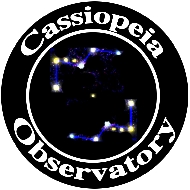Visit to Kitt Peak,
Observing with WIYN 3.5m Telescope, page 2
Posted: 15 May 2016
Upon entering the WIYN observatory, we stopped in the WIYN control room.
One of the telescope operators:
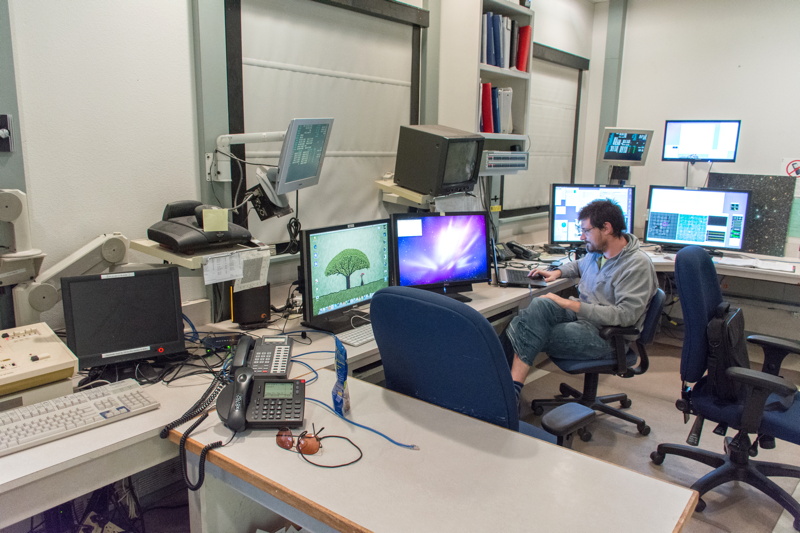
Dr. Salzer (left), a telescope operator, and Dr. Musser (right):
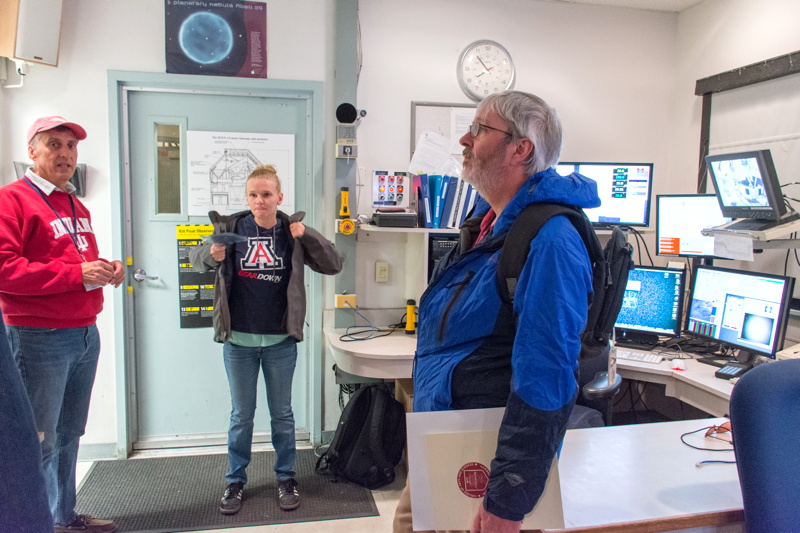
Red LED flashlights were provided:
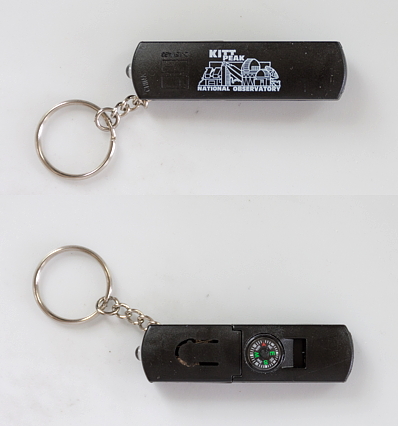
Dr. Salzer provided a tour of the 3.5-meter telescope:
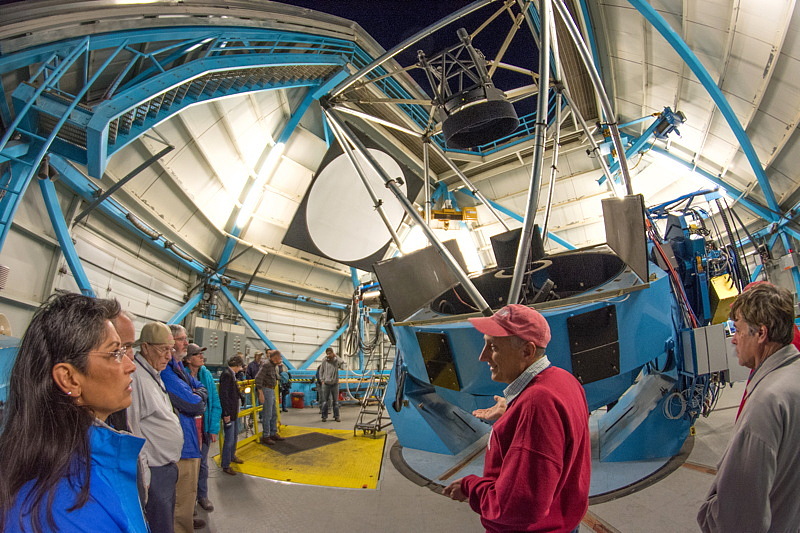
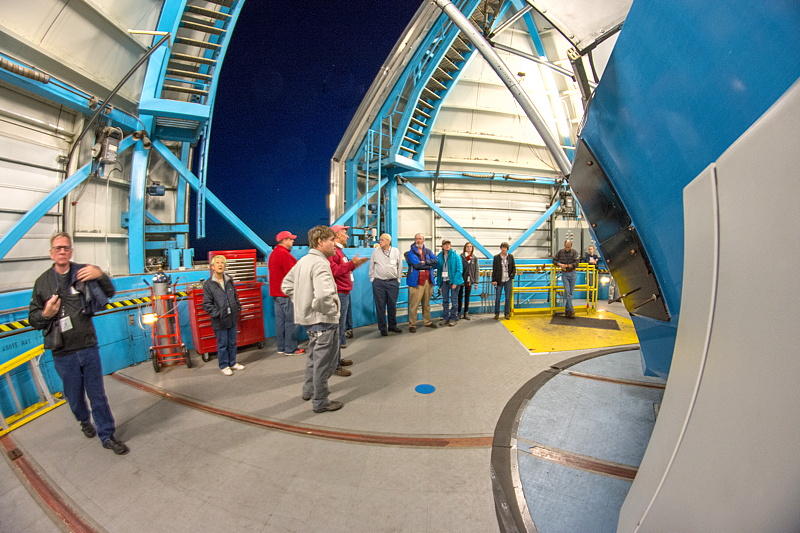
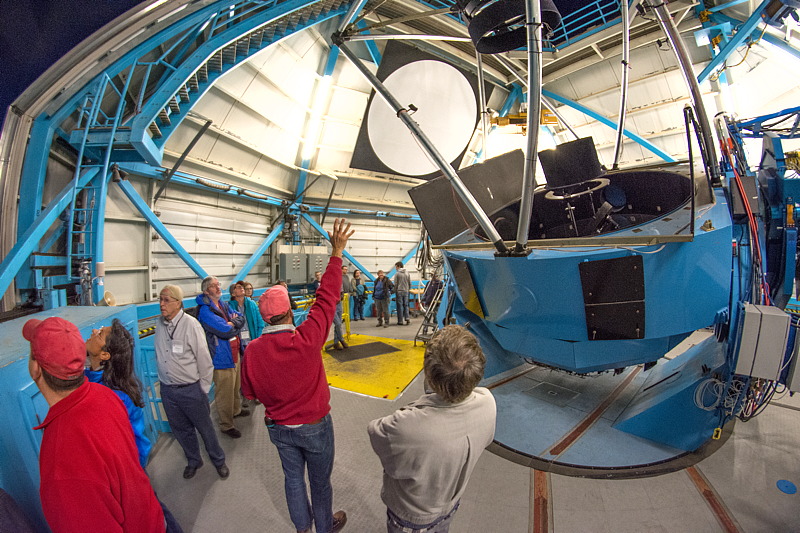
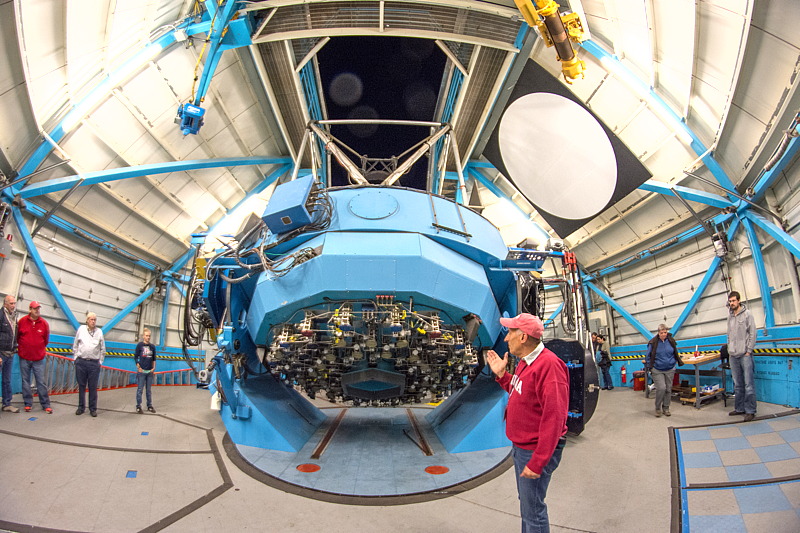
One of the controllers checking out the eyepiece we would be looking through:
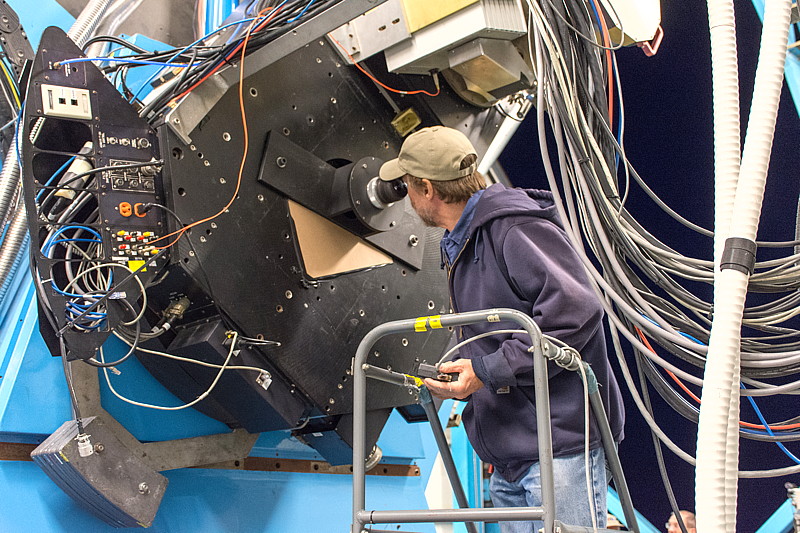
We began our special observing session on the 3.5m telescope with a view of the Moon. Here is the telescope pointed at the Moon, with Jupiter at the left edge of the opening:
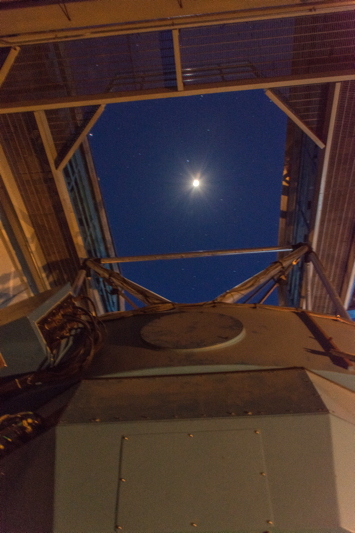
The view of the Moon in the eyepiece as seen in this photo taken "afocally" with a handheld iPhone 6s Plus:
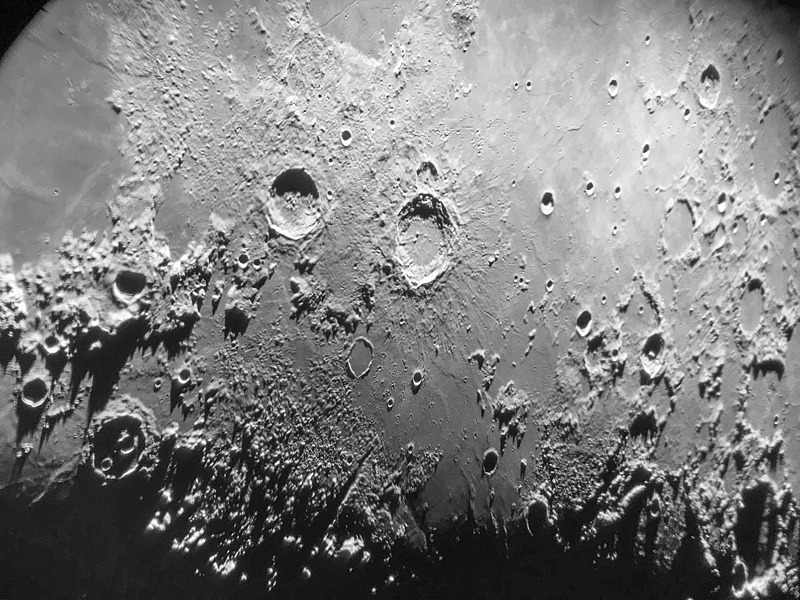
Next up was the planet Jupiter. Two of the Galilean Moons (left), several cloud bands, and the Great Red Spot are visible in this handheld afocal D7200 DSLR photo, f/3.5, 1/200sec, ISO 400, Lens Focal Length 18mm:
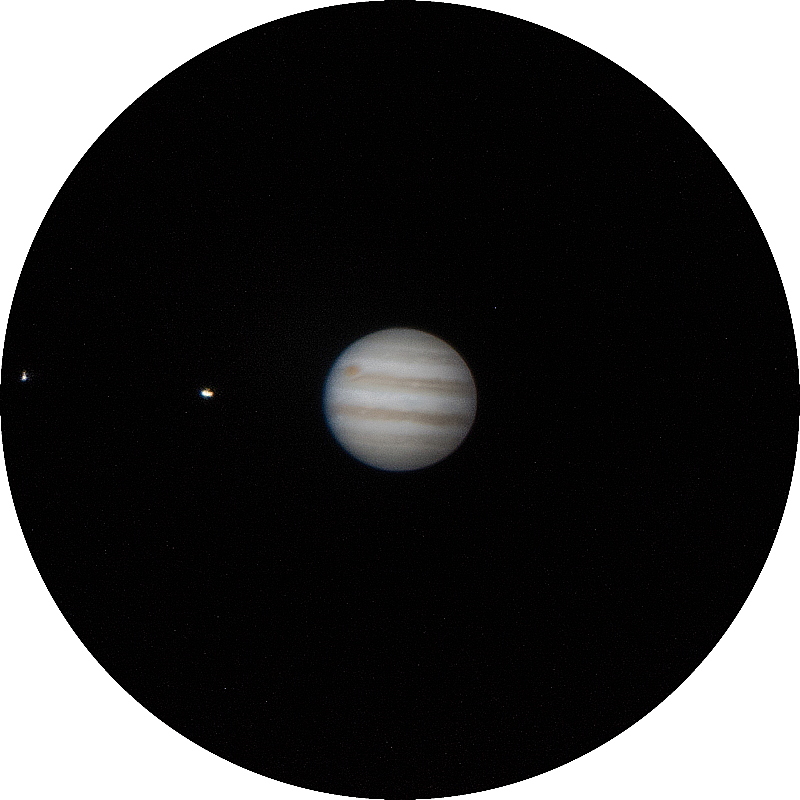
While others of our group were at the eyepiece I was taking photos of the sky from inside the observatory. Here are some stars (slightly blurred from the long exposure) as reflected in the mirror of the telescope, DSLR handheld f/3.5, 4 seconds, ISO 6400, FL 18mm:
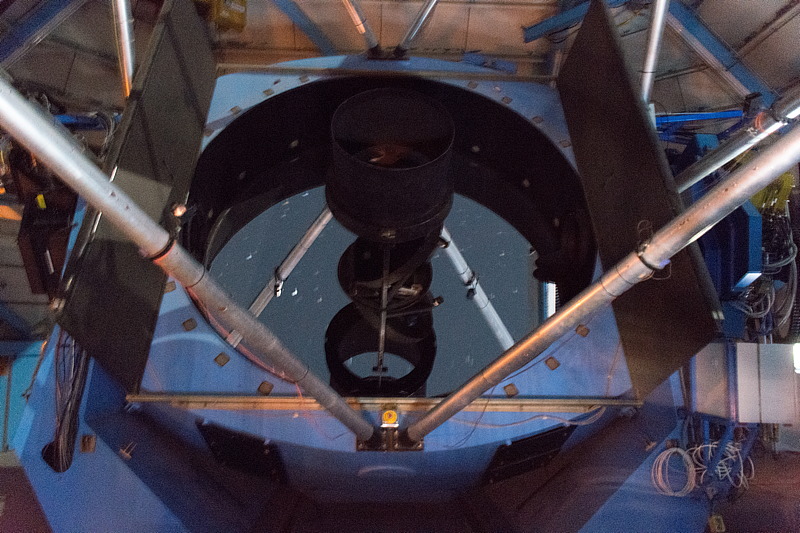
This is M3, a globular cluster, handheld afocal photo, f/3.5, 1/4sec, ISO 6400, FL 18mm:
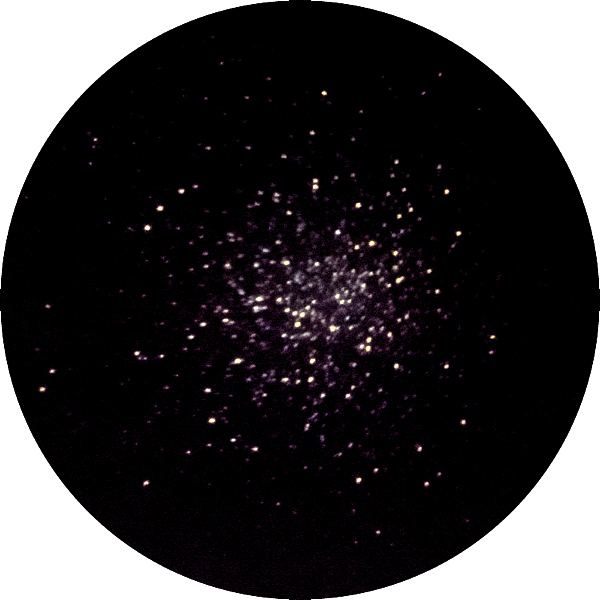
The Big Dipper high above the telescope, handheld f/3.5, 1 second, ISO 6400, FL 18mm:
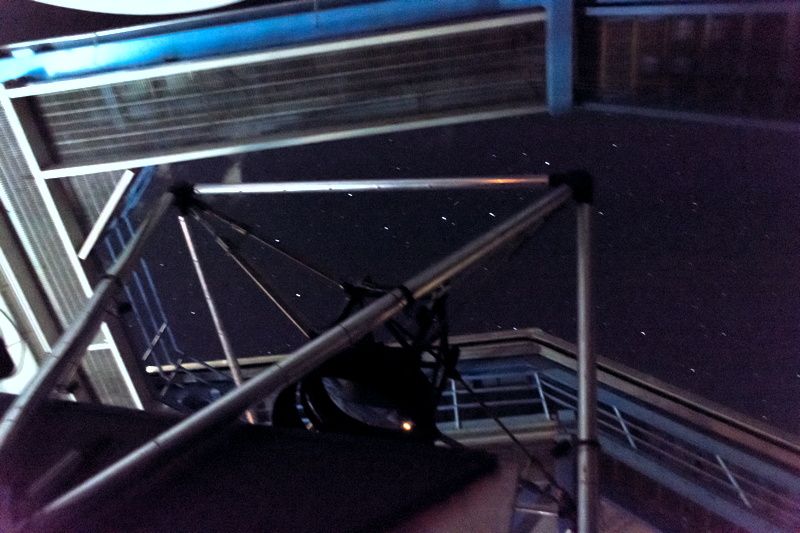
Nearby observatories and the sky with Mars and Saturn in the constellation of Scorpius, handheld f/3.5, 1 second, ISO 6400, FL 18mm:
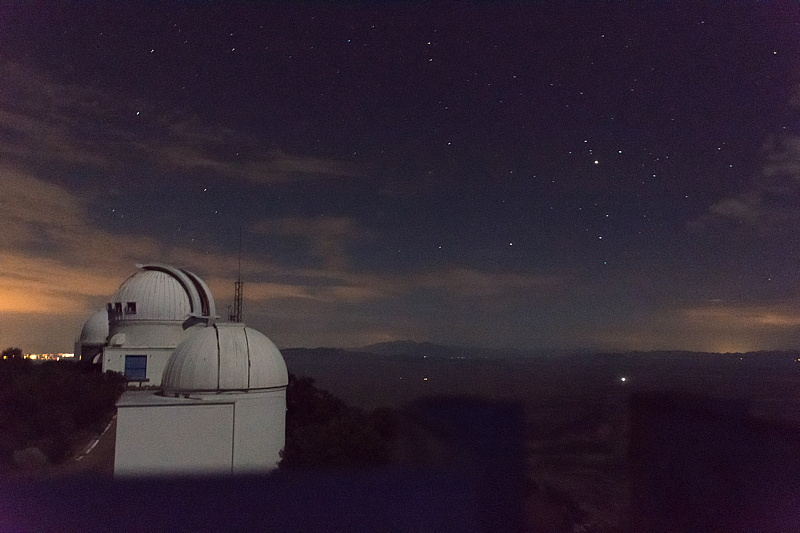
Mouseover or tap on image for labels
The Mayall Observatory and sky to the northeast, handheld f/3.5, 1 second, ISO 6400, FL 18mm:
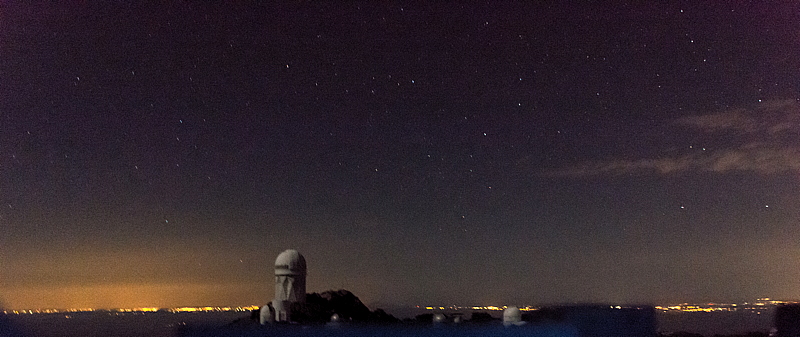
A portion of M51, the Whirlpool Galaxy, showing some spiral arm structure, handheld afocal photo, f/3.5, 2 seconds, ISO 12800, FL 18mm:
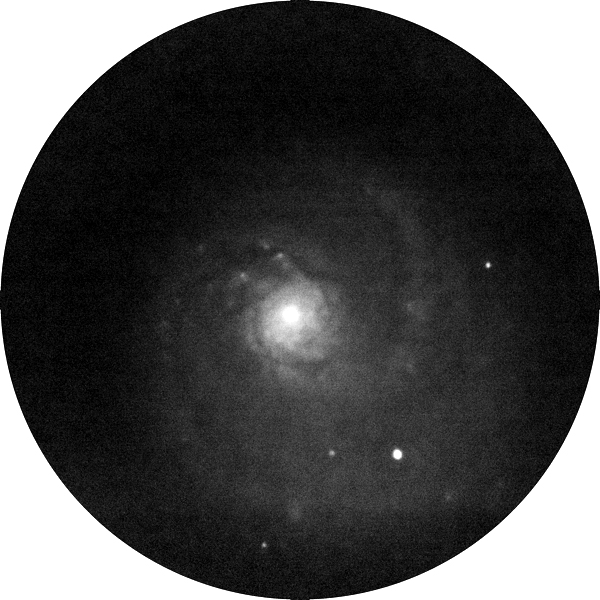
M53, another globular cluster, handheld afocal photo, f/3.5, 1 second, ISO 12800, FL 18mm:
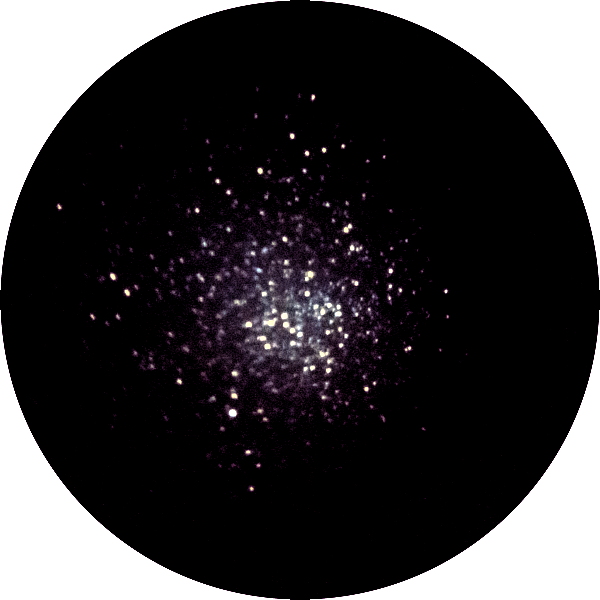
The Omega Centauri globular cluster was visible to the naked eye in the south, if you knew where to look. This handheld f/3.5, 1 second, ISO 12800, FL 18mm, photo shows it above Baboquivari Peak:
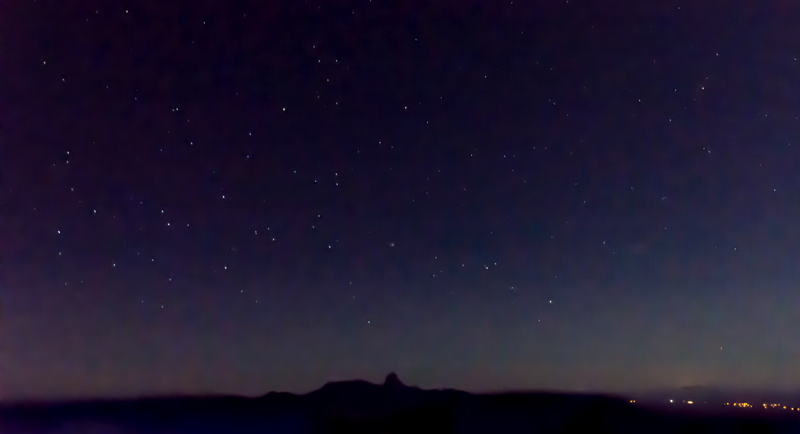
Mouseover or tap on image for labels
The planet Mars, handheld afocal photo, f/3.5, 1/1000sec, ISO 400, FL 18mm:
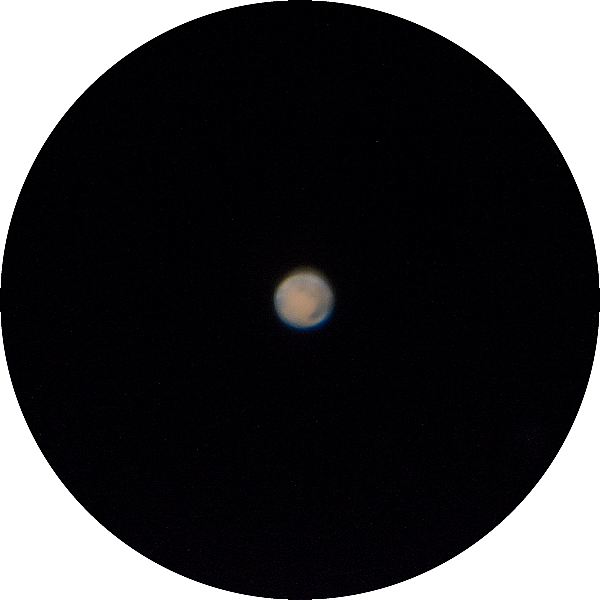
Mouseover or tap on image for labels
The constellation of Scorpius, Mars, and Saturn rising in the southeast, handheld f/3.5, 1 second, ISO 6400, FL 18mm:
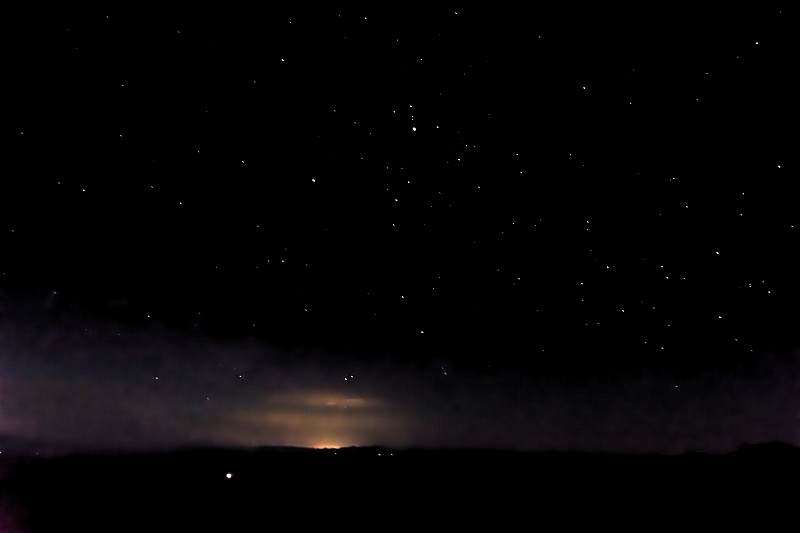
Mouseover or tap on image for labels
Our last object viewed through the 3.5-meter WIYN telescope was the planet Saturn, with its Cassini Division in the Ring and several cloud bands, as seen in this handheld afocal photo, f/3.5, 1/200sec, ISO 400, FL 18mm:
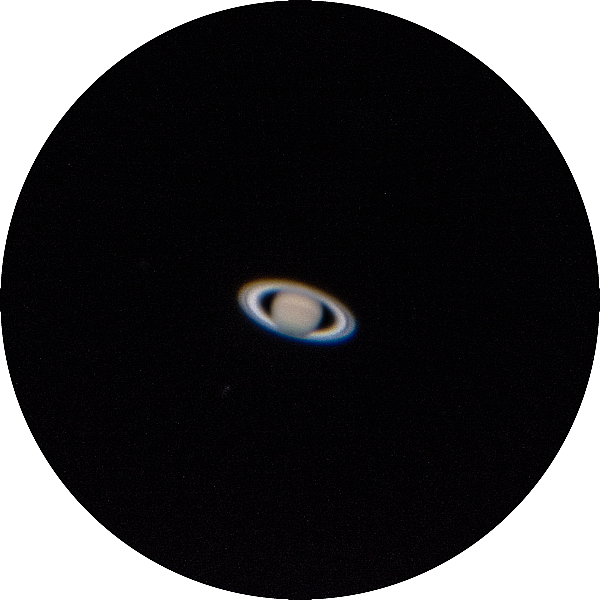
Although cloudy skies had been the norm during the day, the sky was mostly clear during our observing. The observing session ended about 2330 MST (11:30 PM), and with our many thanks we turned the telescope back over to the WIYN staff and observers.
Thanks once again to Jeff Stuckey and his staff at Indiana University Bloomington for arranging and sponsoring another very special night at WIYN.
See my other Kitt Peak visit reports:
- 2014 Gallery
- 2012 Gallery
- 2010 Gallery
- 2009 Gallery
- 2008 Gallery
- 2006 Gallery
- 2005 Gallery
- 2002 Gallery
- 1974 Gallery
Go back to Page 1 "Visit to Kitt Peak".
Comments are welcome using Email. Thanks.
Cassiopeia Observatory Home Page
Copyright ©2016 Michael L. Weasner / mweasner@me.com
URL = http://www.weasner.com/co/Reports/2016/05/WIYN/index2.html
